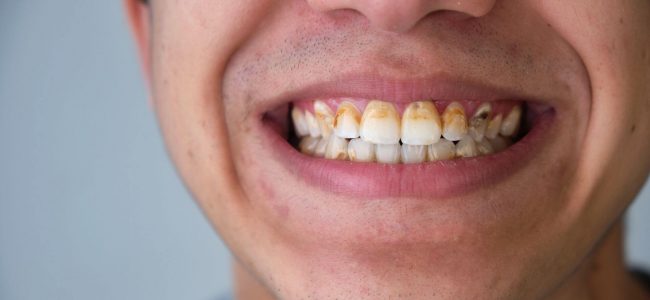How Do I Know If I Have Tartar?
Over time, dental plaque, which is a soft, sticky film, can build up on the teeth and can eventually cause tartar buildup. Tartar buildup, when left untreated, may cause permanent enamel problems and/or gum damage. So how can you know if you have tartar so that it can be properly addressed by a qualified dentist? Know what causes plaque and tartar so that you can get into a dentist right away to prevent permanent damage.
Causes of Tartar Buildup
Tartar buildup is caused by an excess of plaque that is left on the teeth. This colorless, sticky film contains bacteria. If plaque is not removed, it will react with the saliva in the mouth to harden over time and become tartar, which can only be removed by a skilled dentist.
Tartar can be identified by its yellowish color, although sometimes it can be colorless. Hardened tartar can feel like a crusty blanket over your teeth. Certain foods or drinks, such as coffee, can stain the tartar on your teeth, leaving it yellow or brownish in color.
Plaque and Tartar Can Affect Health
Because plaque and tartar contain bacteria, this bacteria can erode away tooth enamel. This leaves the tooth exposed to cavities and decay. Bacteria from plaque and tartar doesn’t just affect the teeth, but it can affect the gums as well. An accumulation of bacteria around the gum area can lead to inflammation and periodontal, or gum, disease.
Gingivitis is the early stages of periodontal disease that is characterized by swollen, tender, or bleeding gums. Left untreated, gingivitis will turn into periodontitis. Periodontitis occurs when the gums begin to pull away from the teeth, leaving gaps or spaces that plaque and tartar can get into. When bacteria from plaque and tartar enter the exposed gaps, it can destroy not only the teeth, but also the bone underneath, and it can eventually lead to tooth loss.
Preventing Tartar Buildup
The best way to prevent tartar buildup is to brush your teeth regularly, floss often, use mouthwash, and be sure to schedule regular dental cleanings and appointments. It is recommended that you should schedule dental cleanings at least every 6 months for optimal oral health.
Limiting plaque-causing foods, such as sugary snacks and drinks, is another great way to avoid plaque and tartar buildup. Foods such as soda, cake, milk, and candy are foods that commonly contribute to such buildup on the teeth. Avoiding these kinds of foods and visiting your dentist as recommended are both great ways to keep your smile looking healthy and white. It is also the best way to prevent tartar buildup and avoid damaging plaque and related gum diseases.
Dental Visits for Preventative Health
The best kind of health is preventative health, addressing potential issues before they become serious concerns that can affect your health. Visit your local Ideal Dental office to receive the best in preventative dental care. Scheduling a comprehensive exam is the first step to improving oral health. After the initial exam and cleaning, your dentist can talk with you about areas of concern and potential problems that could arise if not treated proactively. Working with your dentist to address small problems can go a long way in preventing the bigger, more painful, and ultimately more expensive dental problems that could occur if you let issues continue for too long before seeking dental treatment.
Improve your overall health by improving your dental health. Schedule an examination and cleaning with your local Ideal Dental office today to keep your smile looking bright.
